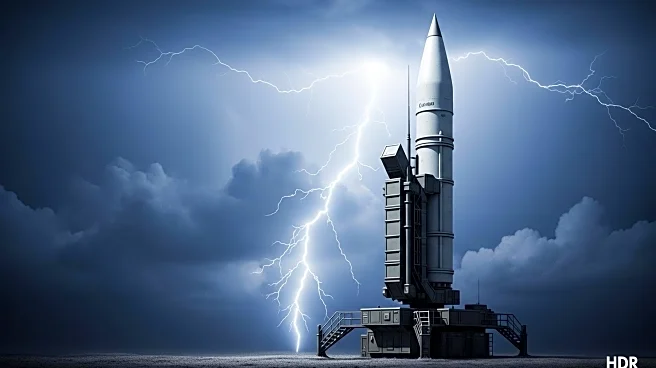What's Happening?
Taiwan showcased its latest defense technologies at the Taipei Aerospace & Defense Technology Exhibition, aiming to deter potential aggression from China. The National Chung-Shan Institute of Science and Technology presented several systems, including the Jin Feng-IV anti-ship missile and the Chiang Kung missile defense system. These systems are designed to enhance Taiwan's asymmetric warfare capabilities, with the Chiang Kung system capable of engaging hypersonic targets. Taiwan's defense strategy under President Lai Ching-te focuses on producing drones and other technologies to counter Chinese military advancements.
Why It's Important?
The unveiling of these defense systems is significant as it highlights Taiwan's efforts to bolster its military capabilities amid increasing tensions with China. The focus on asymmetric warfare and advanced missile systems reflects Taiwan's strategic shift to deter potential invasions. This development could impact regional security dynamics and influence U.S. foreign policy, as Taiwan seeks to integrate its defenses with U.S. systems. The move also underscores Taiwan's reliance on domestic production and international partnerships to enhance its military readiness.
What's Next?
Taiwan plans to continue mass production of the Chiang Kung missile defense system and expand its drone capabilities. The country is also exploring next-generation interceptors and seeking U.S. approval for integrating its systems with American technology. These efforts are part of Taiwan's broader strategy to prepare for potential military confrontations with China, emphasizing the need for real-time target detection and tracking capabilities.
Beyond the Headlines
Taiwan's defense strategy, including the 'Hellscape' concept, highlights the ethical and strategic implications of using swarms of uncrewed systems in warfare. This approach raises questions about the future of military engagements and the role of technology in national defense. The collaboration with U.S. companies also reflects the geopolitical complexities of defense procurement and international relations.









